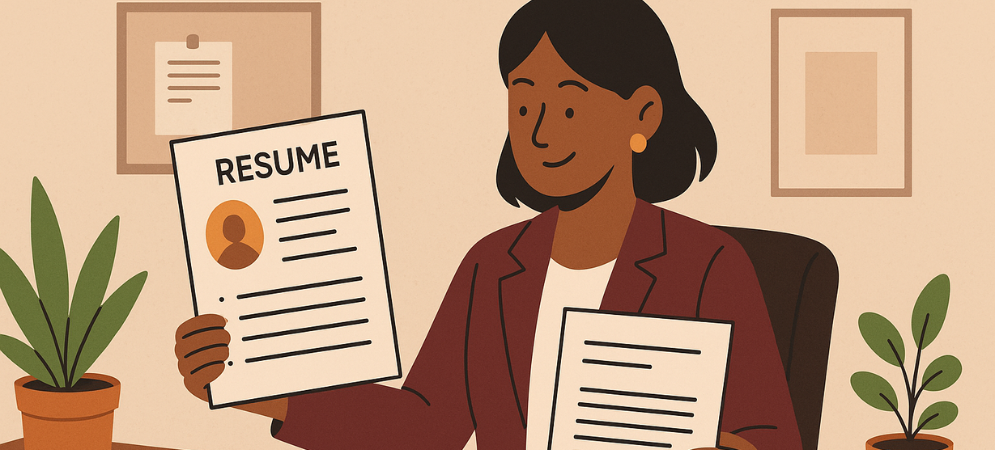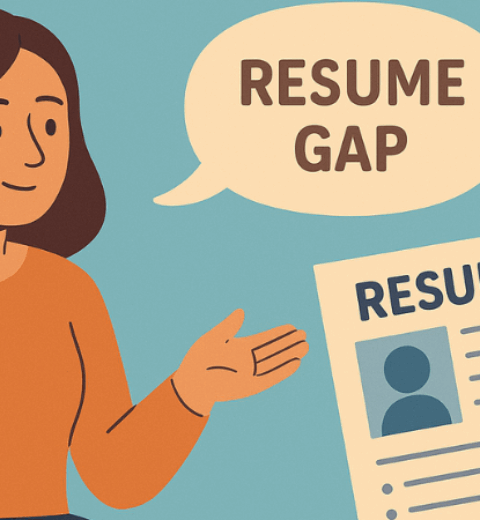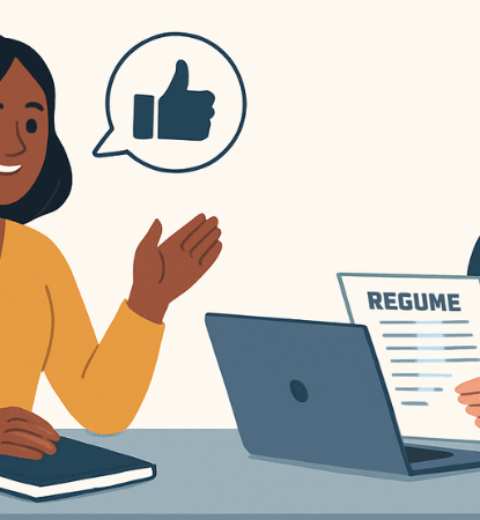You’ve tailored your resume. You’ve written a cover letter. You’ve applied to dozens of roles. But still no call back. The problem may not be your experience or education; it could be that your resume and cover letter don’t meet HR’s expectations.
Today’s hiring managers and recruiters receive hundreds of applications per role. To stand out, you need to deliver the right information in the right format fast. In this guide, we’ll break down exactly what HR professionals look for in a resume and cover letter in 2025 and how to get their attention from the first glance.
1. Clarity and Brevity: Less is More
Most recruiters spend just 6 to 10 seconds scanning a resume. HR is not reading every word—they’re skimming for structure, clarity, and key qualifications.
What HR Wants:
- Clear section headings (e.g., Summary, Education, Skills, Experience)
- Bullet points over long paragraphs
- White space that makes reading easy
- A resume length of 1 page (for freshers or those under 5 years’ experience)
What HR Avoids:
- Walls of text
- Irrelevant details like hobbies or outdated skills
- Unprofessional fonts or overdesigned templates
Want a resume that’s clean, concise, and keyword-optimized? Check out our CV Writing Services designed specifically for ATS and recruiter readability.
2. Tailored Content for the Role
One of the biggest mistakes job seekers make is sending the same resume and cover letter to every job. HR professionals can spot a generic application in seconds.
- Resumes that include keywords from the job description
- Custom cover letters that speak to the company’s goals
- Content that reflects understanding of the role
Example:
Applying for a marketing role? Your resume should feature campaign metrics, social media skills, or branding knowledge, not just “communication skills.”
How to Do It:
- Read the job post thoroughly and use similar terminology
- Use a tailored summary at the top of your resume
- Mention the company by name in your cover letter and align with their mission or recent projects
Related Resource: Our blog on Degree vs. Skills: How to Craft a Career-Boosting Resume dives deeper into what employers really prioritize in modern hiring.
3. Results Over Responsibilities
HR professionals aren’t just looking for what you’ve done, they want to know how well you did it. Listing responsibilities without impact makes your resume sound passive.
What HR Wants:
- Achievements with numbers, outcomes, and success metrics
- Results that align with the role you’re applying for
Instead of:
“Handled social media posts for company accounts.”
Write:
“Managed Instagram and LinkedIn accounts, increasing engagement by 45% in 6 months.”
Use action verbs like led, managed, developed, increased, and delivered to demonstrate initiative.
4. A Compelling Professional Summary
Your resume’s Professional Summary is often the first thing HR reads. A good summary answers the question: Who are you, and what value do you bring?
What HR Wants:
- A brief, 3–4 sentence overview of your background, strengths, and goal
- Industry-specific keywords
- Alignment with the job role
Example:
“Detail-oriented finance graduate with internship experience at JPMorgan, proficient in financial modeling and forecasting. Seeking a junior analyst role where I can apply strong data interpretation and risk assessment skills.”
5. A Cover Letter That Adds Value (Not Repeats Your Resume)
Many job seekers treat cover letters as just a summary of their resume. That’s a missed opportunity. HR wants a narrative, a reason to believe you’re the right fit.
What HR Wants:
- A brief intro explaining why you’re applying
- One or two key experiences or achievements
- Why you’re interested in that specific company
Cover Letter Tip:
Don’t write, “I’m applying because I saw your posting.” Instead, say something like:
“With a passion for sustainable architecture and a proven record managing $1M+ construction budgets, I’m excited by your firm’s recent eco-friendly design initiatives.”
Need help crafting this level of personalization? Explore our Cover Letter Writing Services we write industry-specific letters that actually get read.
6. Soft Skills But Only When Backed by Evidence
HR wants team players, communicators, and self-starters, but only if you can prove it. Simply saying you’re a “team player” isn’t enough.
What HR Wants:
- Soft skills demonstrated through real actions
- Examples in context (projects, volunteer work, group success)
Example:
“Collaborated with a cross-functional team of 5 to reduce software deployment time by 30%.”
Mentioning relevant interpersonal strengths in your cover letter also helps differentiate you.
7. ATS Compatibility
Before a resume ever reaches HR’s desk, it often goes through an Applicant Tracking System (ATS). If your resume isn’t ATS-friendly, it may never be seen.
What HR Wants:
- Standard fonts like Arial or Calibri
- No tables, text boxes, or graphics
- File format: PDF or DOCX (as requested)
At ResumeFaster, we create ATS-optimized resumes that get through filters and land on human eyes. We format content to hit keyword targets without looking robotic.
Conclusion
Your resume and cover letter are your first shot at making a memorable impression and HR professionals know exactly what to look for. Tailoring your content, highlighting results, and crafting a compelling narrative are what truly make a difference.
Whether you’re applying for your first internship or a leadership role, your documents should reflect not just what you’ve done, but what you’re capable of doing next.
Need help getting it right? Our expert team at ResumeFaster offers custom-written CV and Cover Letter Services that speak directly to hiring managers and HR professionals giving you a real edge in a crowded job market.



